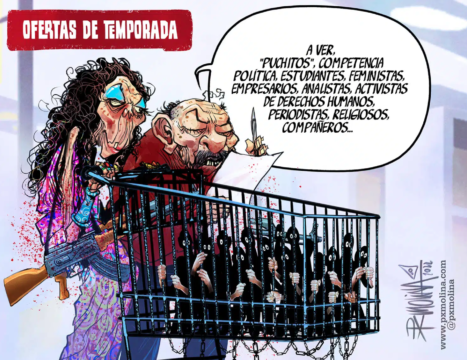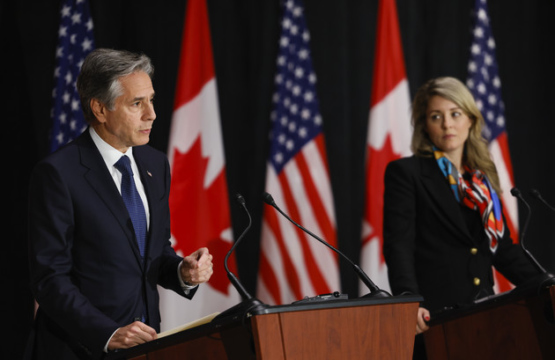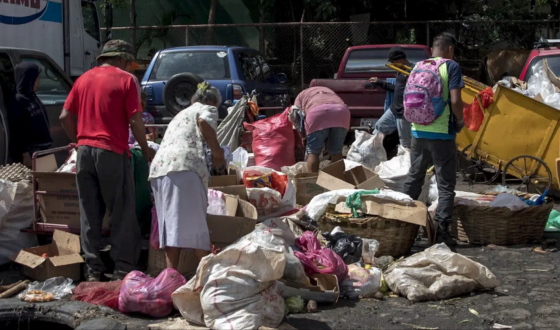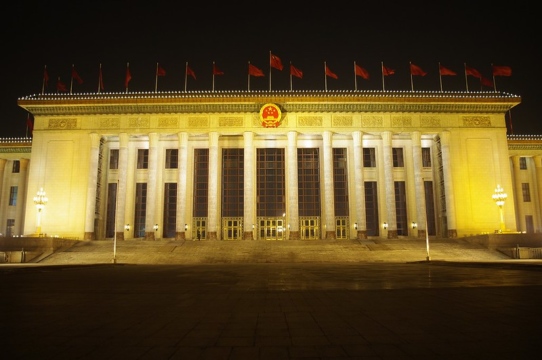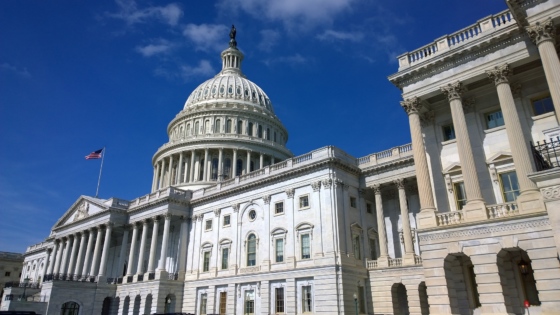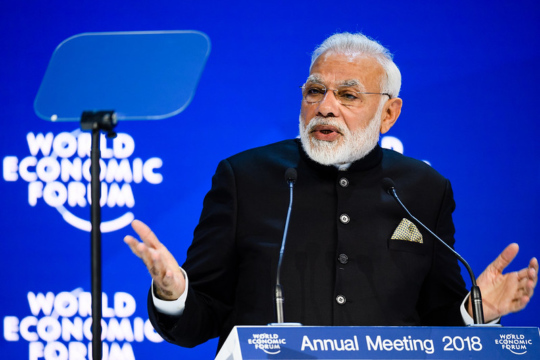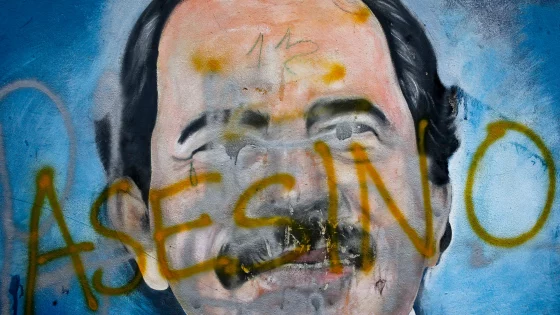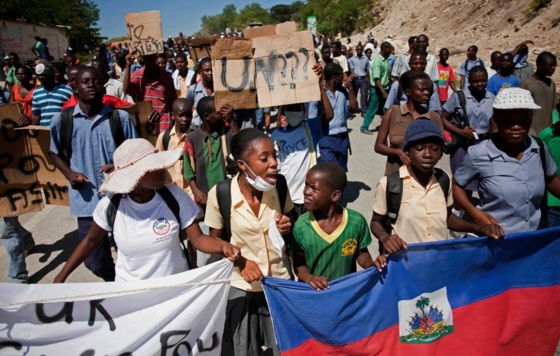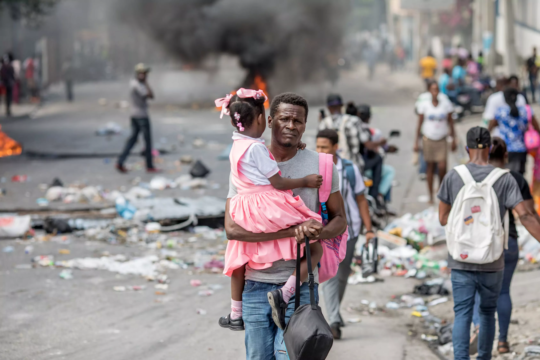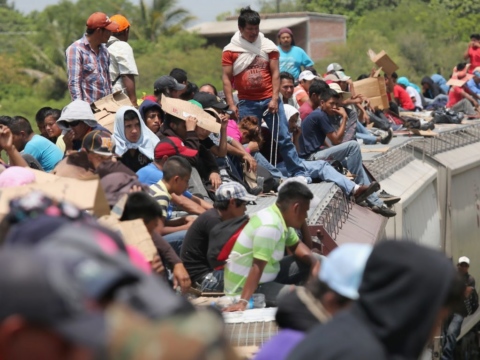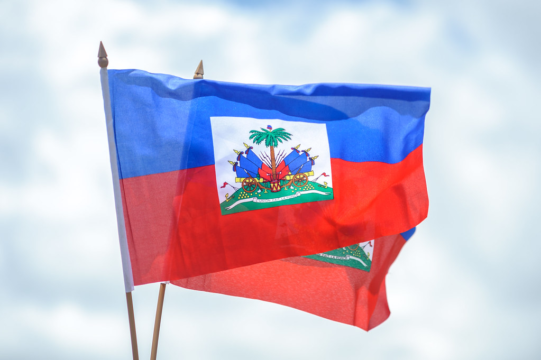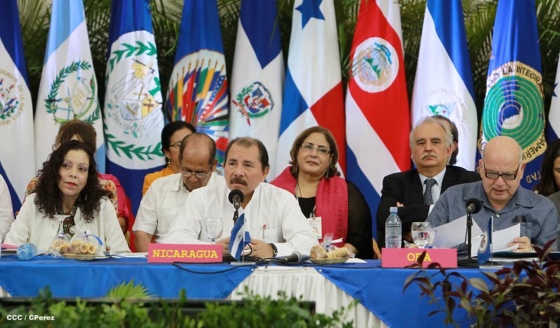
Follow this road map. It can take Haiti from violent chaos to progress and peace
As three long-term observers of the country, we argue that a more assertive international response is needed and offer the following road map to help Haiti reset.
As three long-term observers of the country, we argue that a more assertive international response is needed and offer the following road map to help Haiti reset.
El malestar creciente entre los altos funcionarios, la corrupción desenfrenada y las purgas, revelan que no hay salida con Ortega y Murillo. El reto radica en aprovechar las crecientes debilidades, las posibles rupturas y recuperar espacios en miras de devolver la confianza y la autoestima al pueblo para presionar por un cambio político.
Diagnosis of the crisis has been easy—but what key actors in Haiti and its international partners can agree on what to do about has remained muddled.
Para un país pequeño como Nicaragua, con menos de 150,000 negocios formales, la imposición de impuestos, aun en medio de pandemia y crisis económica, ha sido una guerra frontal del Estado en castigo por su patriotismo por el cambio democrático.
Latinoamérica seguirá siendo un proveedor esencial de materias primas para China, un mercado destacado para sus tecnologías y una región clave para su política exterior.
¿Es razonable esperar que Estados Unidos tenga un protagonismo o incremente sus compromisos de acción climática durante la COP27 en Sharm el-Sheikh? ¿Qué herramientas le quedan en su política doméstica que reflejen un renovado y ambicioso compromiso internacional?
Despite much talk of enhanced Indian engagement with the region over the past decade, India-Latin America ties remain relatively limited.
Xi’s work report, which was delivered during the Party Congress, and Chinese officials’ interpretations of it, will shape the country’s domestic and foreign policy in the coming months and years, and, though not expressly focused on China’s plans for overseas engagement, will also have major implications for Latin America and other regions.
Después de la farsa electoral de noviembre 2021 y con su tercera continuidad autoritaria, Daniel Ortega prometió “borrón y cuenta nueva, y vamos adelante.” Esta declaración cimentó lo que se convirtió en la radicalización del autoritarismo del régimen.
Less than a year ago, Republicans and Democrats came together to support the RENANCER Act to limit the catastrophic dictatorship of Nicaragua under the regime of President Daniel Ortega and his wife, Vice President Rosario Murillo.
Based on wide experience in eight conflicts, to include Haiti, I believe there is a way out of the current dead end. It requires patiently and assertively combining international expertise and resources with Haitian will and energy to address the country’s intertwined problems of security and governance.
Since March 2021, Haitian civil society has been working hard to develop innovative, local solutions to the country’s problems, including a blueprint for a Haitian-led transition that could well forge a new path for the country. For that plan to work, the changes will need to be profound and transformative, and the process of implementing them as inclusive and empowering, as possible.
Hay que tomar en serio la migración y las realidades que la hacen posible porque la salida de personas,
sin respuestas sólidas y comprometidas con el progreso social, no solo continuará, pero no hará mejorar
al país, aun y con las remesas que entran.
Unless there is a course adjustment soon, all signs point to a catastrophic political and humanitarian crisis in Haiti.
Los países miembros de la recién creada Alianza para el Desarrollo en Democracia tienen un compromiso político, moral y económico de rescatar la democracia del secuestro de los autócratas.
